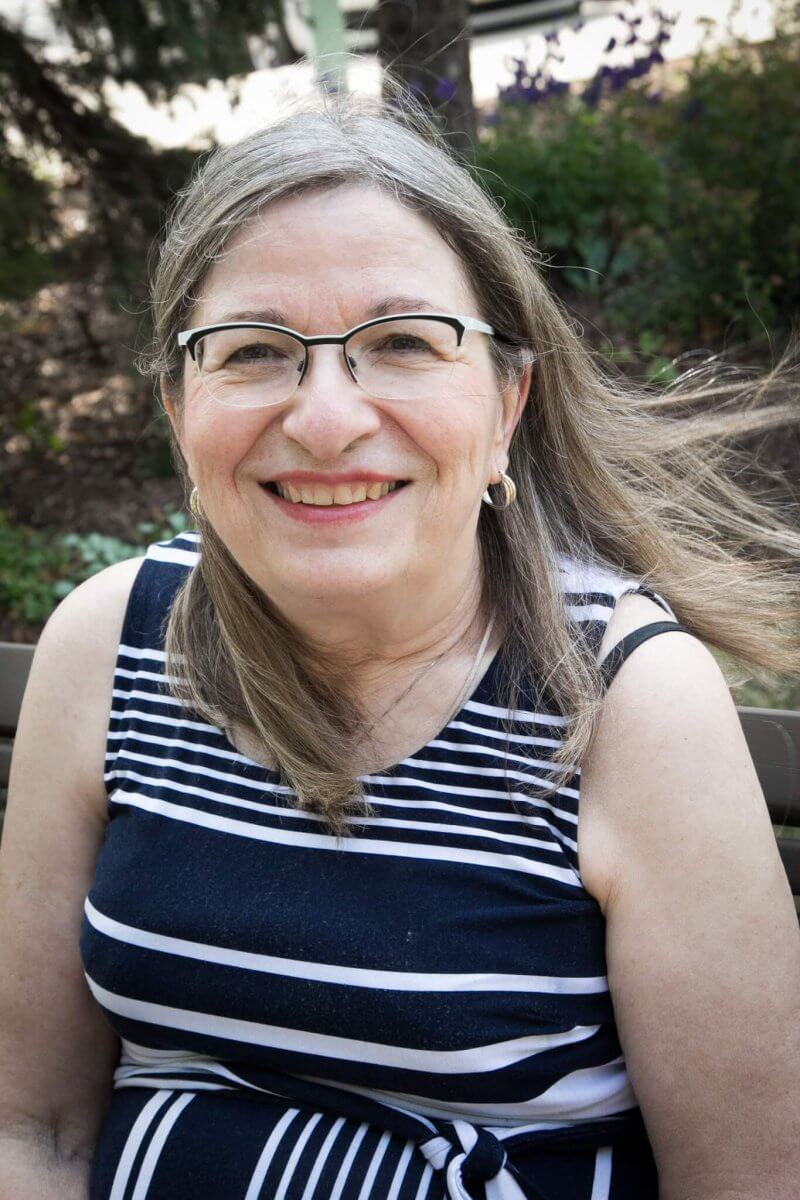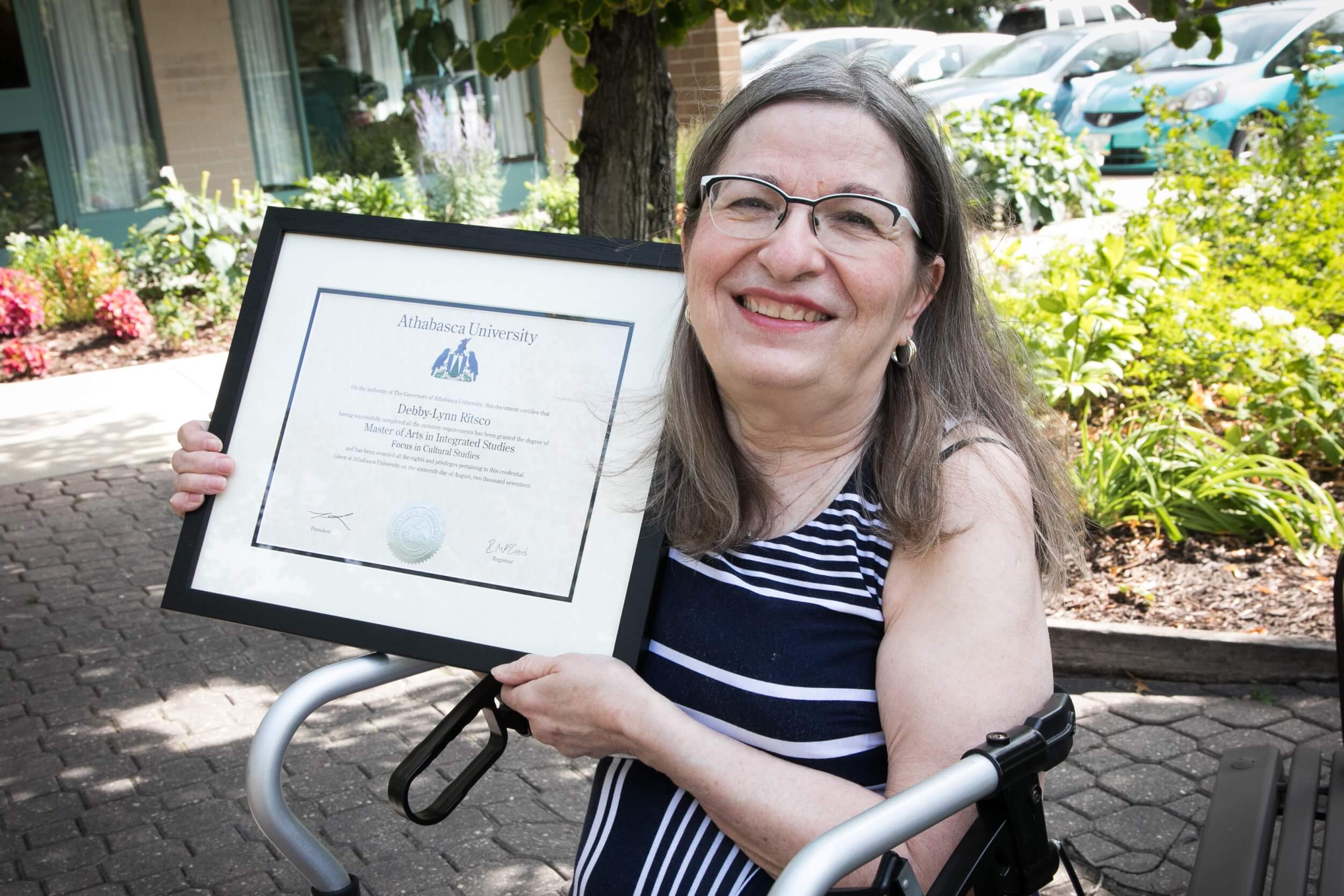Debby Ritsco: Revising Script, Revising Life
The seed for learning was planted and nurtured in me by my Dad. He believed in education, as a lifeline, for facing hard times.

His teachable moments usually took place in the barn, while hand-milking cows. Both parents were regretful school dropouts who emphasized applying my best at school by studying hard, doing homework first before other activities, and submitting to the teacher’s instructions. Fundamentals for achieving were enriched by participation in 4-H. In 4-H and most subjects, I excelled.
In English literature and composition, my marks were low, though they did not deter my acceptance into university. At university, I learned that my substandard performance in English was related to Romanian being my first language. When I expressed my Romanian thoughts in English, the word order and grammar defied English rules. My teachers’ red comments and red corrections throughout written assignments had sent a clear message that I spoke and wrote backwards, and I often felt belittled in front my classmates. This experience made me more determined to improve verbal and written skills in English.
In 1972, I received a Standard “A” Teaching certificate from the University of Saskatchewan. Diagnostic and prescriptive teaching, as well as reading, writing and cultural studies courses, exposed a passion for helping disadvantaged learners. Though my writing skills kept my grade point average low, they were sufficient for a farmwife occupation.
Soon after settling on the farm, hard times did strike when my Dad was killed in a haying accident in July 1976. At the time, I was happily married, had two sons (ages 2 and 3), and had kept my teaching credentials current by substitute teaching for principals in rural schools. In October 1977, I gave birth to my third son. That year, winter came early and snowfall was heavy, blocking our farm driveway for four months.
I struggled with my mental health after being confined indoors for four months with two toddlers while nursing an infant. Despite two years of out-patient psychiatric treatment and marriage counseling, my husband left me to raise three sons alone in 1980. A week later, I learned I was being sued for all my inherited land and payment of debt.
I had no money! Suddenly, I not only faced the responsibility of raising three small sons as a single mom, but I was also facing onerous court proceedings without a cent to my name. Court proceedings left me financially and emotionally drained. In the matrimonial settlement I lost one quarter of land but retained the village home.
At the time, I was weaning off prescription drugs and starting to consume alcohol for euphoric effects. A counsellor re-channeled me back into university education to nip alcoholism in the bud.
My sons gave me a reason to live. I began revising script. My dad had given me an olive branch to rebuild a new life.
But due to crop failures and high debts, by 1990, I was facing land foreclosure. Due to burnout, I withdrew from Diploma Nursing at SIAST, three months prior to graduation. A second relationship ended with more court proceedings.
Transitioning back into education
A Canadian Rural Transition Program offered to finance the completion of an undergraduate education degree in exchange for two quarters of land. The offer gave me the means for revising script in a shelter for abused women under the safety of zero tolerance for domestic violence. Although it meant permanently relocating to Winnipeg, living underground, and cramming many on-campus and correspondence university courses within one year, I signed the contract. Responsibility of supporting my youngest son was the key motivator.
Three years after completing a Bachelor of Education degree at the University of Manitoba, when my foot was in the door at a comprehensive high school, I started displaying suspicious neurological symptoms. In February 1996, I was diagnosed with Secondary Progressive Multiple Sclerosis (MS).
I hit bottom! My driver’s licence was suspended. I was advised to give up teaching which meant certified nursing was out of the question, as well. Due to stalking episodes, I was living an isolated, underground, secret identity. The pen became the tool for keeping sane.
To support my seven-year-old-son, I privately sewed and tutored students as well as immigrant adults in English as a Second Language. When my son started experiencing frustration within the public school system and his teacher recommended Ritalin, I chose to home school him from mid-Grade Six through Grade Twelve.
Once he was accepted at university, I was hired as a professor’s helper and marker at the University of Winnipeg. Exposure to essay-type papers, projects and presentations in Aboriginal Education, Aboriginal Spirit and Global Studies under a skilled scholar’s supervision for 10 years helped hone my writing skills and opened the door to a new passion.
With courage and determination, I enrolled and completed a Masters of Arts in Integrated Studies, focus area in Cultural Studies, at Athabasca University in August 2017. Looking back, I realize now my Dad had given me the key for revising script and revising life: Education. Divinely orchestrated circumstances opened doors of opportunity and fulfillment. I’m thankful to Athabasca University, for accessibility to online master’s and doctorate programs.
